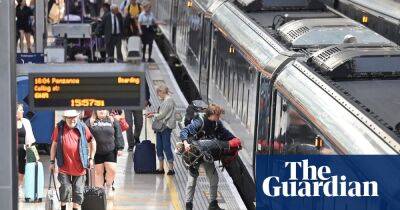Record UK petrol price risks a mass exodus of essential workers
The record increase in fuel prices could spark a mass exodus of staff who rely on their vehicles for work, trade unions and drivers have warned.
On Thursday,the price of a litre of unleaded petrol hit 182.31p, meaning the cost of filling an average family car hit £100 for the first time. Some employees who need to drive for their jobs are spending as much as £350 a week on fuel and others are “paying to go to work”.
The GMB trade union warned that the increase had “crushed” its members and said that shortfalls of staff in the transport and healthcare industries were “only going to get worse as prices continue to shoot up”.
One community NHS worker told the Observer that the fuel price rise had outstripped the reimbursement they were given for petrol costs, so staff were now paying not just to get to work, but also to drive to patients’ houses to do their job.
Tiffany, another community health worker, said fuel now made up the largest chunk of her spending every month – nearly £250 – only £171 of which was reimbursed by the NHS.
She said the rising costs, mixed with the fact that NHS fuel reimbursement came at the end of the month, meant she had to be loaned money by her partner.
“My whole team is exhausted,” she said. “The morale is the worst that it’s been for about 10 years. To be honest with you, I feel worse now than I felt during Covid. I could work at a till in Aldi and be paid more.”
The NHS waiting list in England hit a record high of 6.4 million people last month. The overall staff shortage in the service has reached an estimated 110,000.
The Observer also spoke to taxi and private hire drivers who had been forced to take second jobs or work six-day weeks to deal with fuel costs.
“There’s lots of people that need help,
Read more on theguardian.com





















